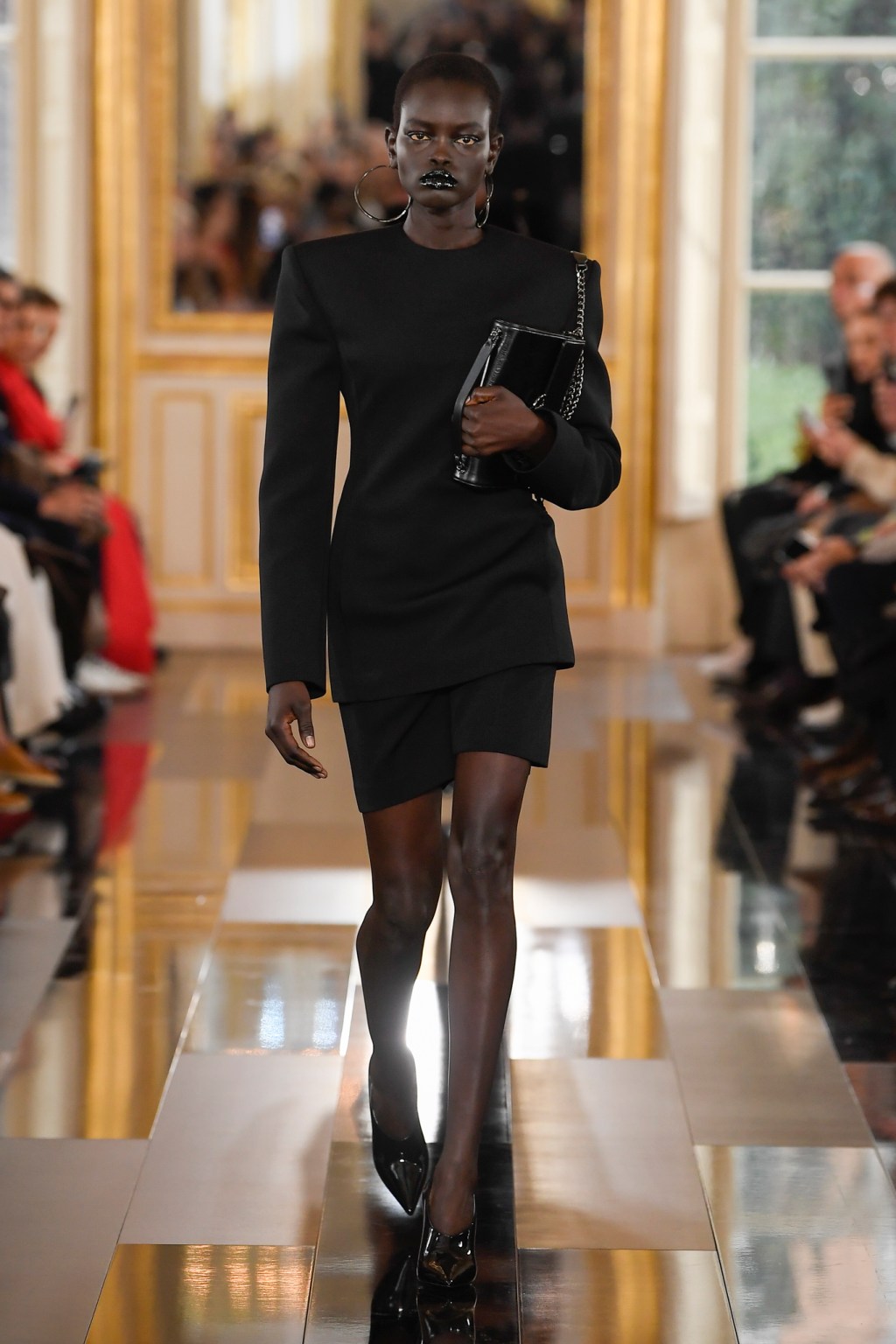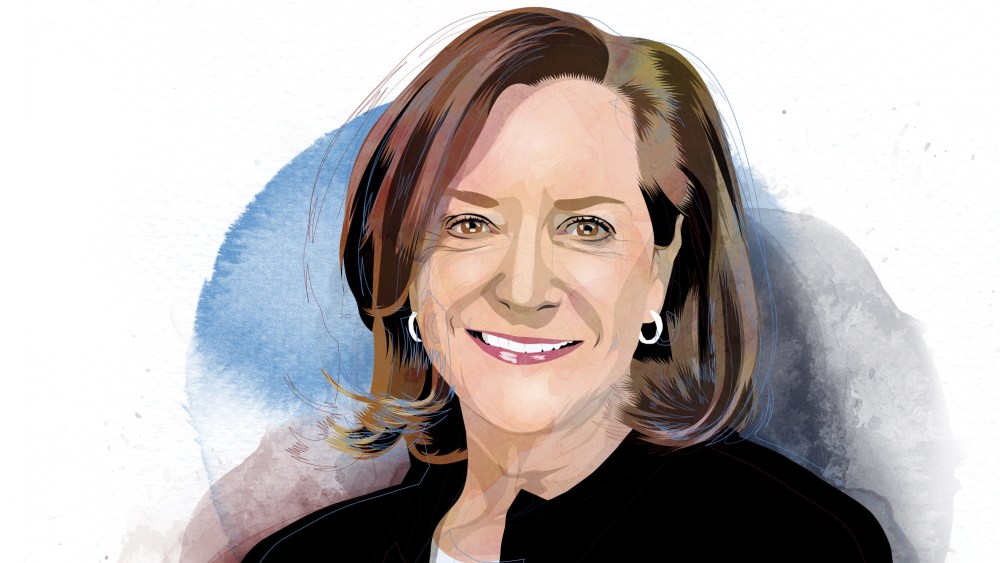Black in the new Pink PP.
After drenching his catwalk in a patented hue of magenta two years ago, Pierpaolo Piccioli sent out an all-black collection for fall. Call it a sign of the times: the designer — like many these days — is feeling a little down about the state of the world, though he’s looking for that silver lining.
“You have to be aware that you are in the dark to look for the light, and that was my starting point,” he said in a preview, where he expounded on the power and versatility of fashion’s favorite shade. “Black is interesting, because it’s the color of these times and it’s very universal, but very individual.”
Linked with mourning and witchcraft, anarchy and rebellion, black also symbolizes elegance and power. Piccioli used it to explore the masculine-feminine duality that’s a recurring theme of his work, through a fresh reading of the house codes from the ‘80s.
He subverted that era’s power dressing by pairing a suit jacket with a sheer chiffon baby doll, or adding rose-like whorls of fabric to the sleeves of a sharp-shouldered micro tunic dress, though a modern-day chief executive officer may well opt for a structured cape over a chiffon pussy-bow blouse and slouchy pants — power dressing on a woman’s terms.
Offering a contemporary rereading of a Brooke Shields campaign from 1981, Piccioli added the brand’s signature ruffles to a sheer blouse, worn with an A-line skirt and chunky biker boots, or featherweight evening gowns that revealed as much as they concealed.
A patent duffel coat glistened with appliqué roses, while a peacoat with allover sequins sprouted spiky plastic fringe. Layers of dense decoration contrasted with the purity of full-skirted day dresses, or a simple black velvet column slashed open at the neck and thigh.
“It’s a new way to give relevance to the identity of Valentino. I see everywhere the same idea: quiet luxury,” Piccioli said. “I don’t like this idea of conservatism, these reactionary thoughts about the past.”
With 60 looks, it was a lot of black, even for die-hard fans of the color (and certainly for Anna Wintour, who is famously averse to it.)
But like looking at a Mark Rothko painting for a really long time, the effect was hypnotic, aided by a swirling score by Alexandre Desplat, with samples of Sade, and the allure of the models’ slick marcel waves and black lipstick.
In a sense, the concept was a no-brainer. Selling racks of black clothing is a lot easier than convincing the world to dress in fuchsia pink, which is bound to feel like a one-season wonder. This show may not ring the death of Barbiecore, but when in doubt, black is always a good idea.


